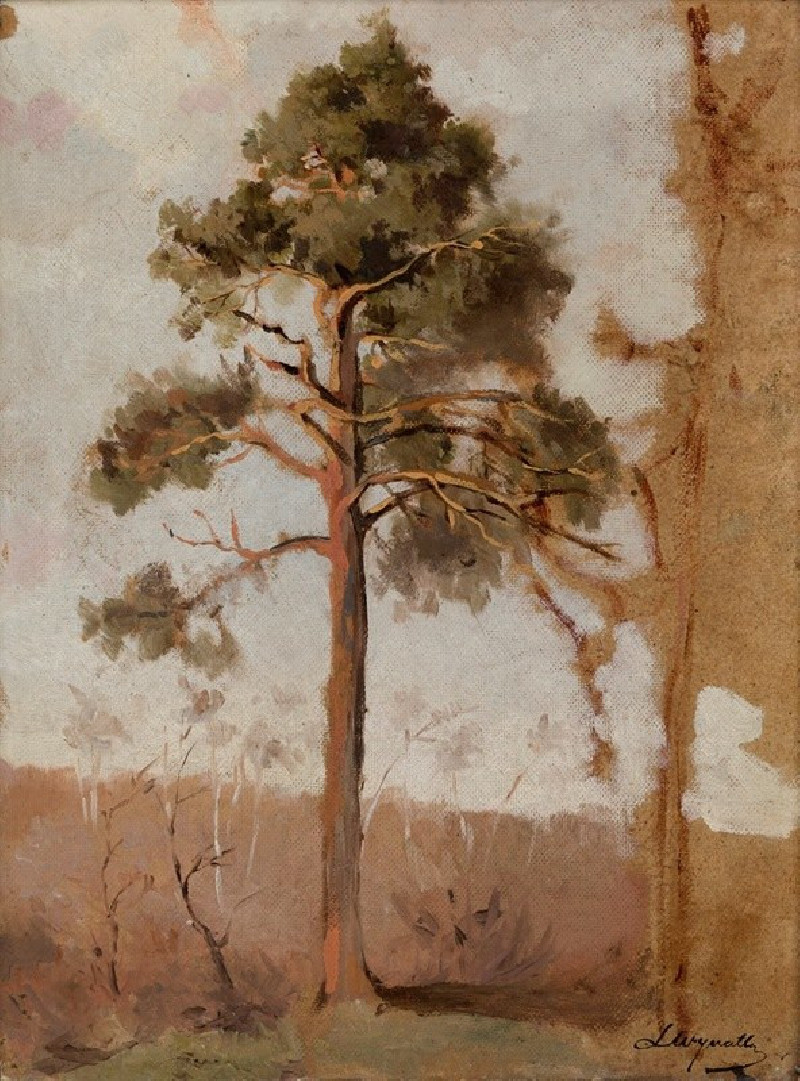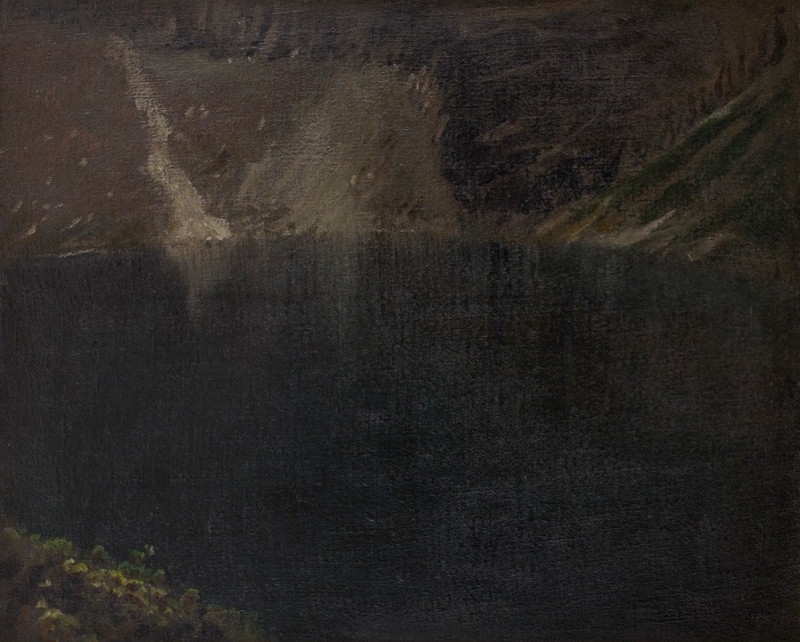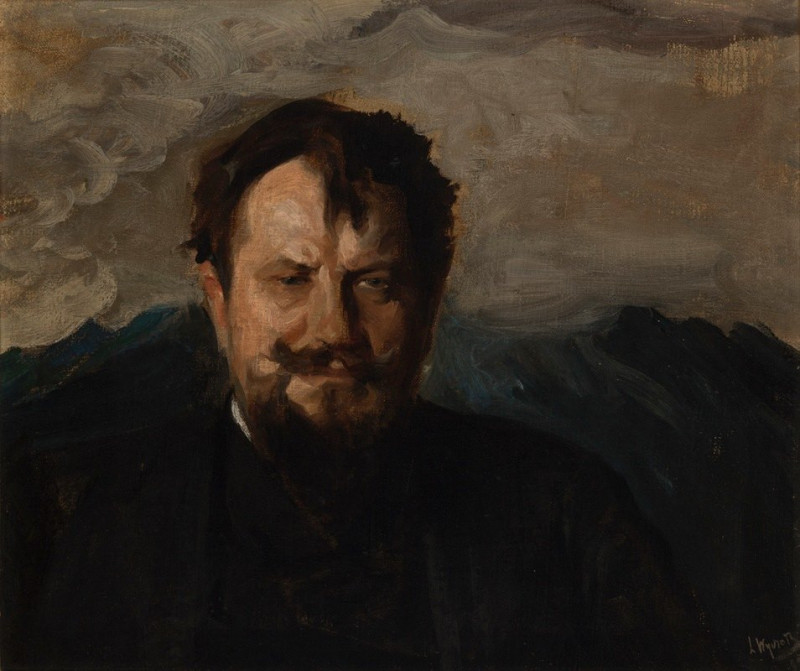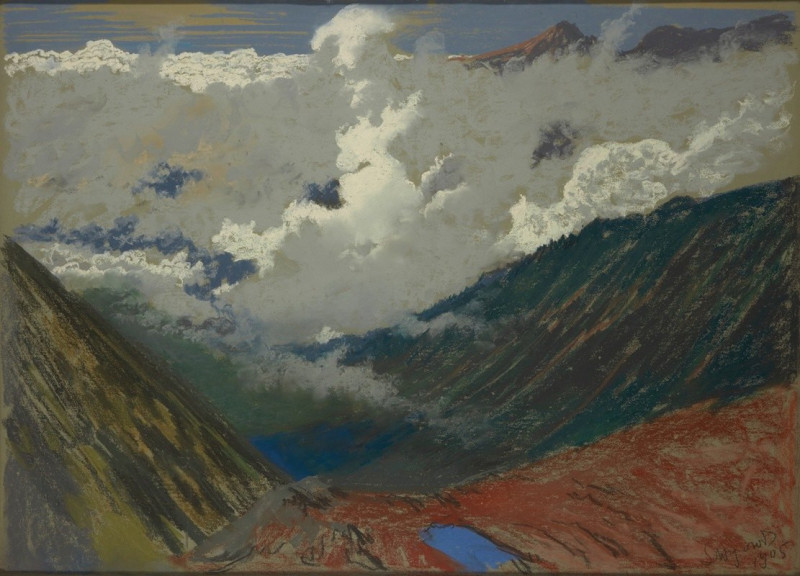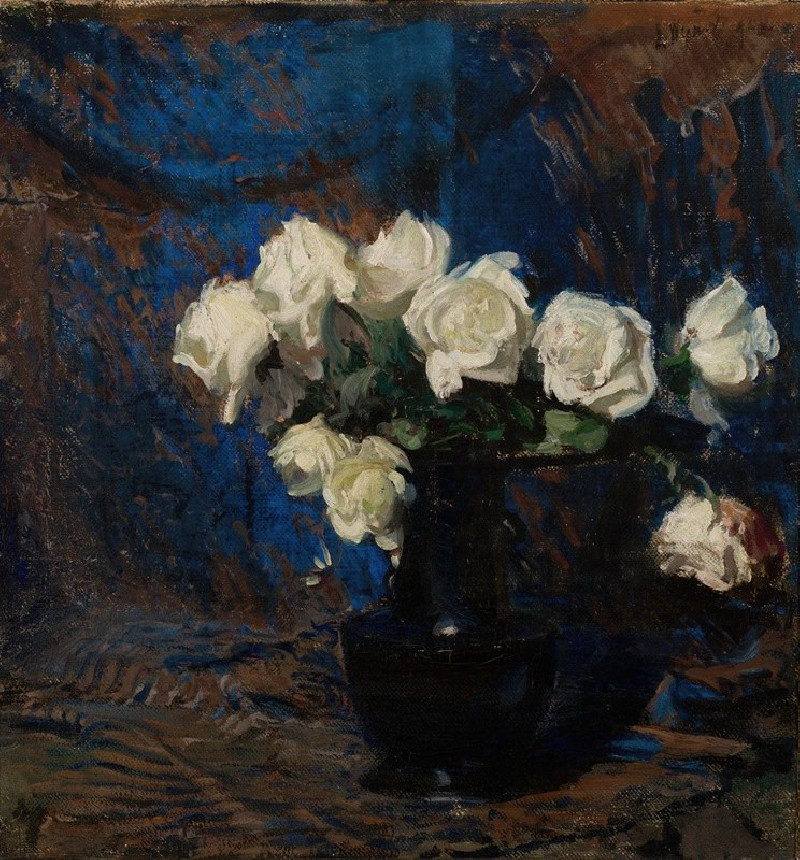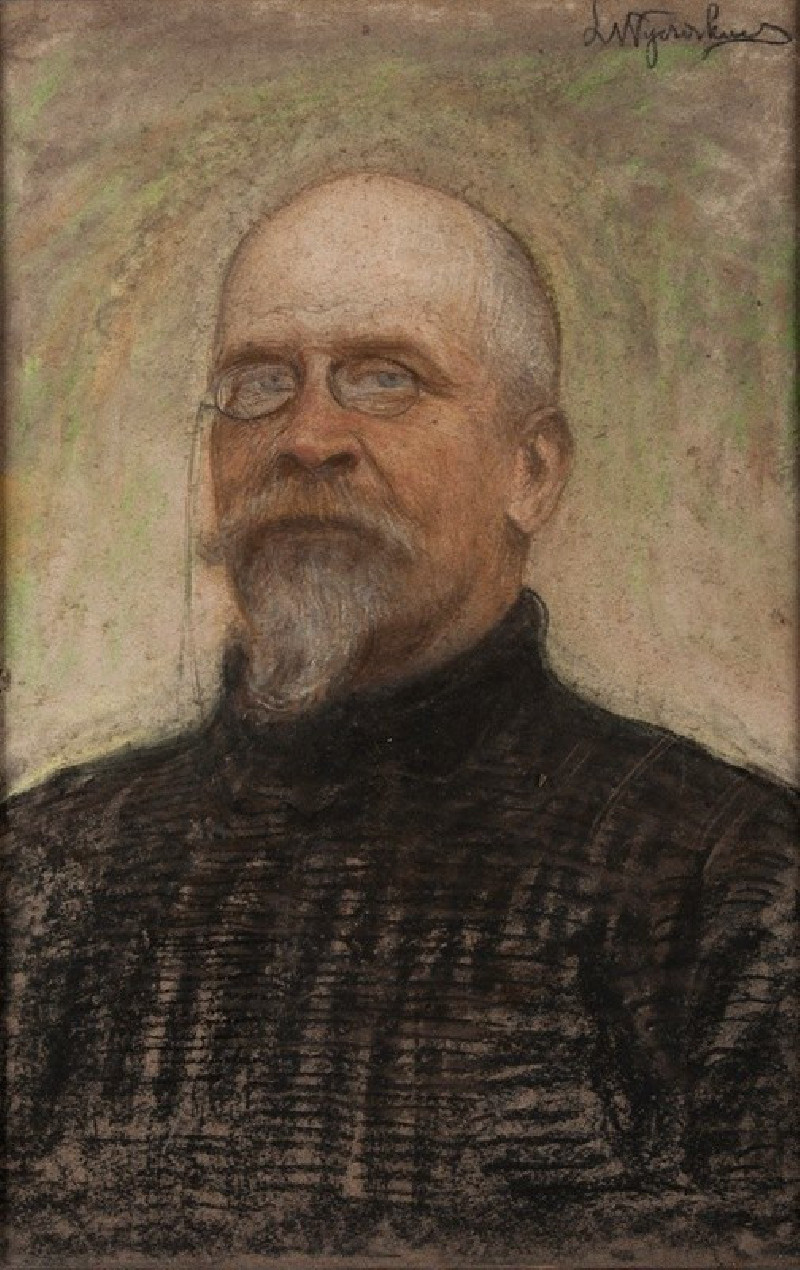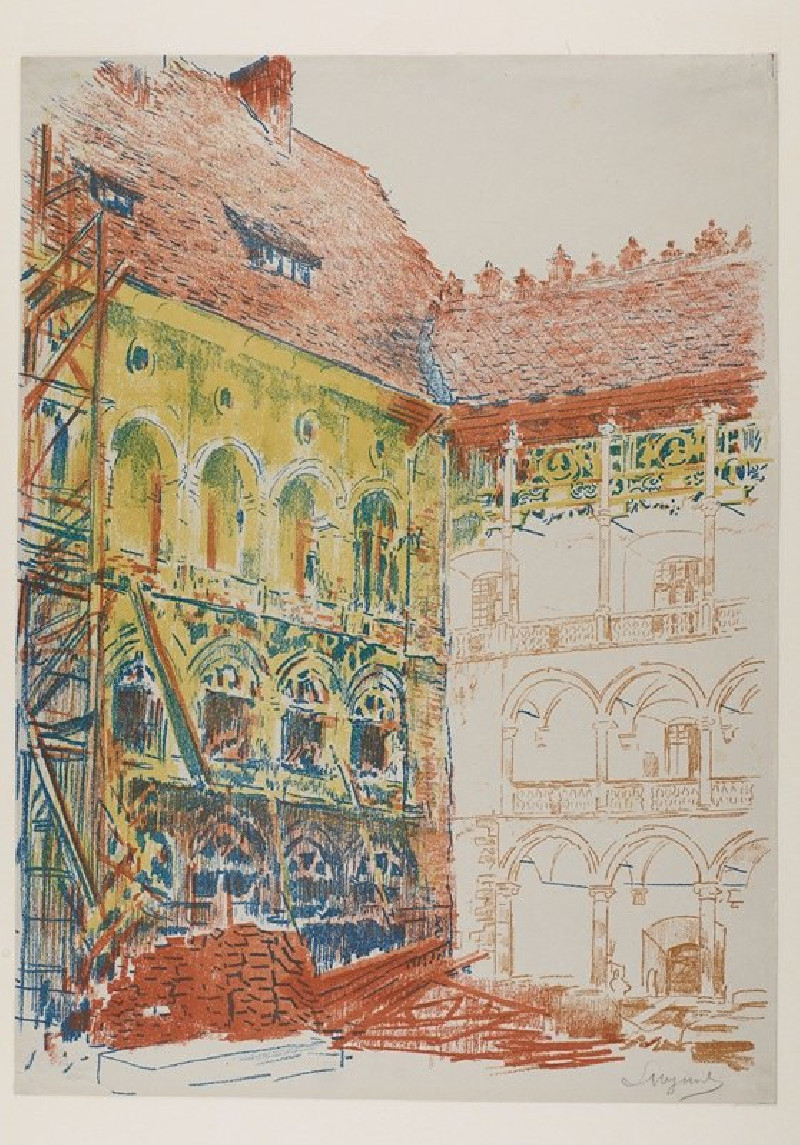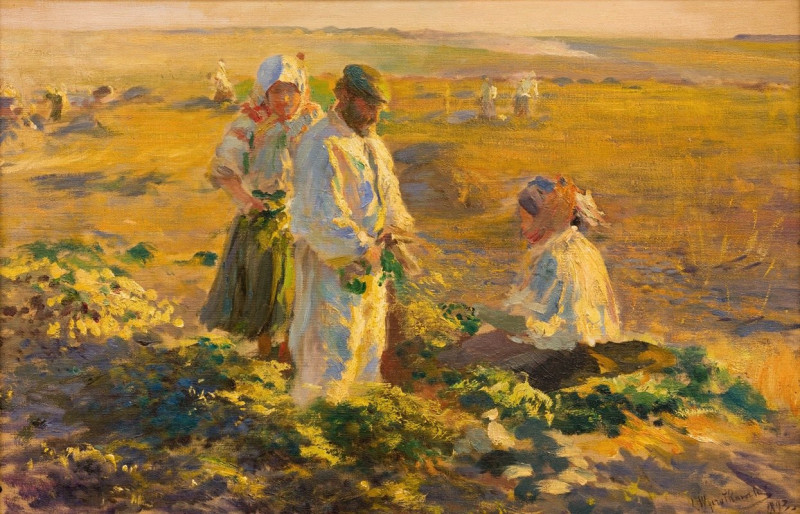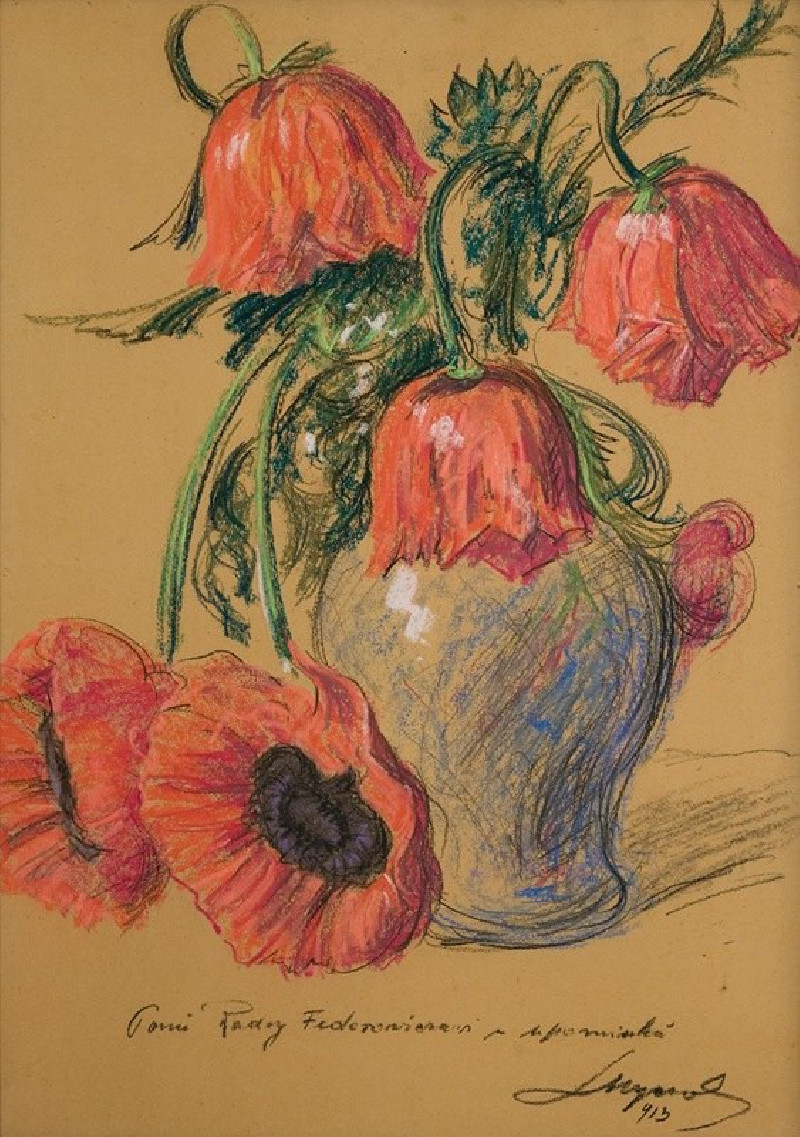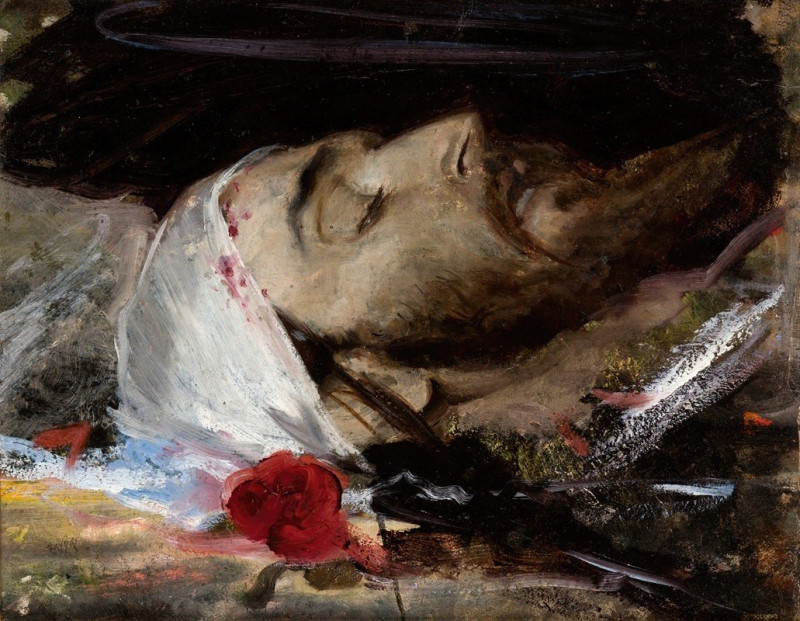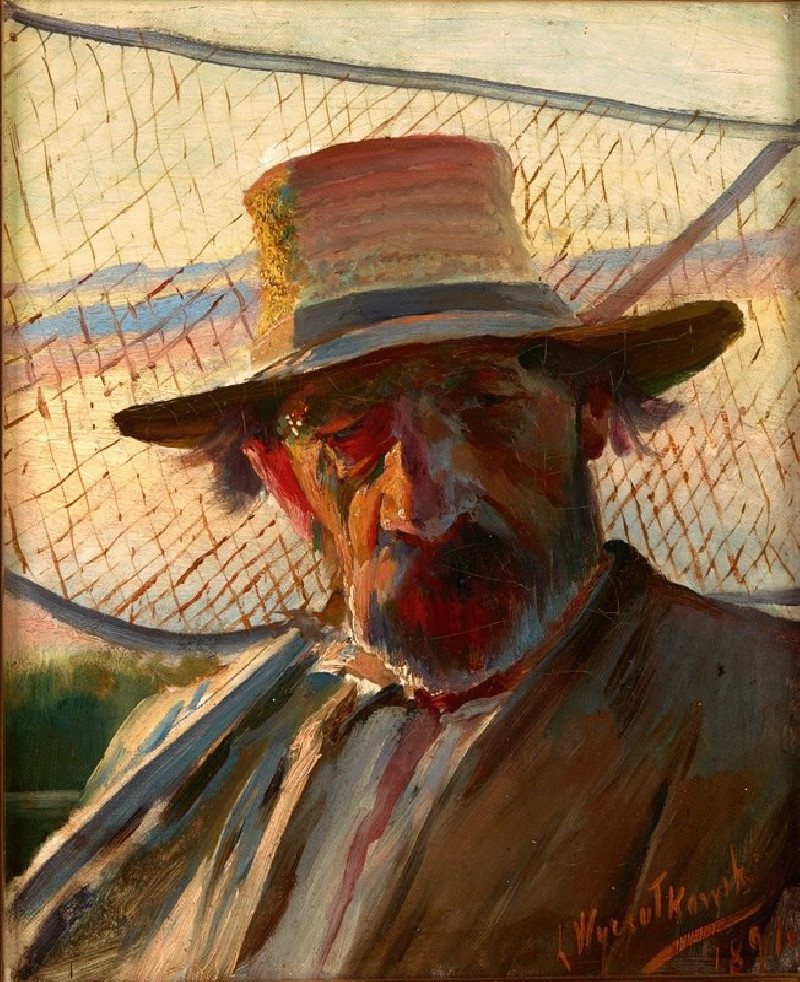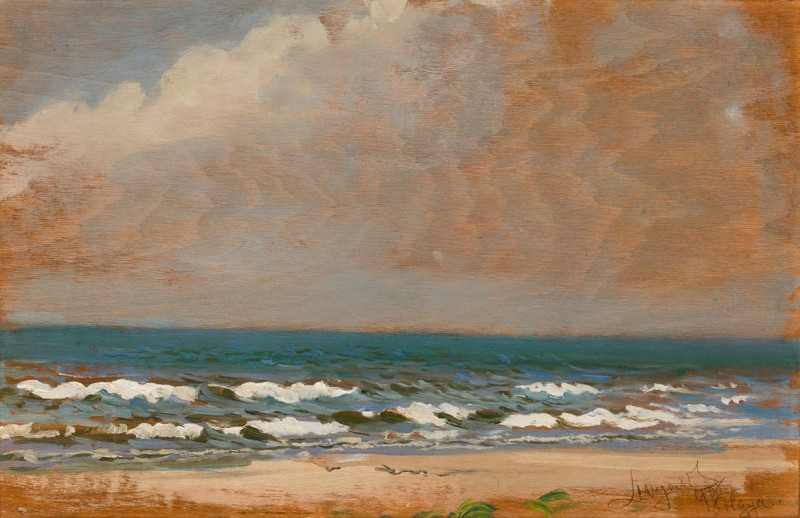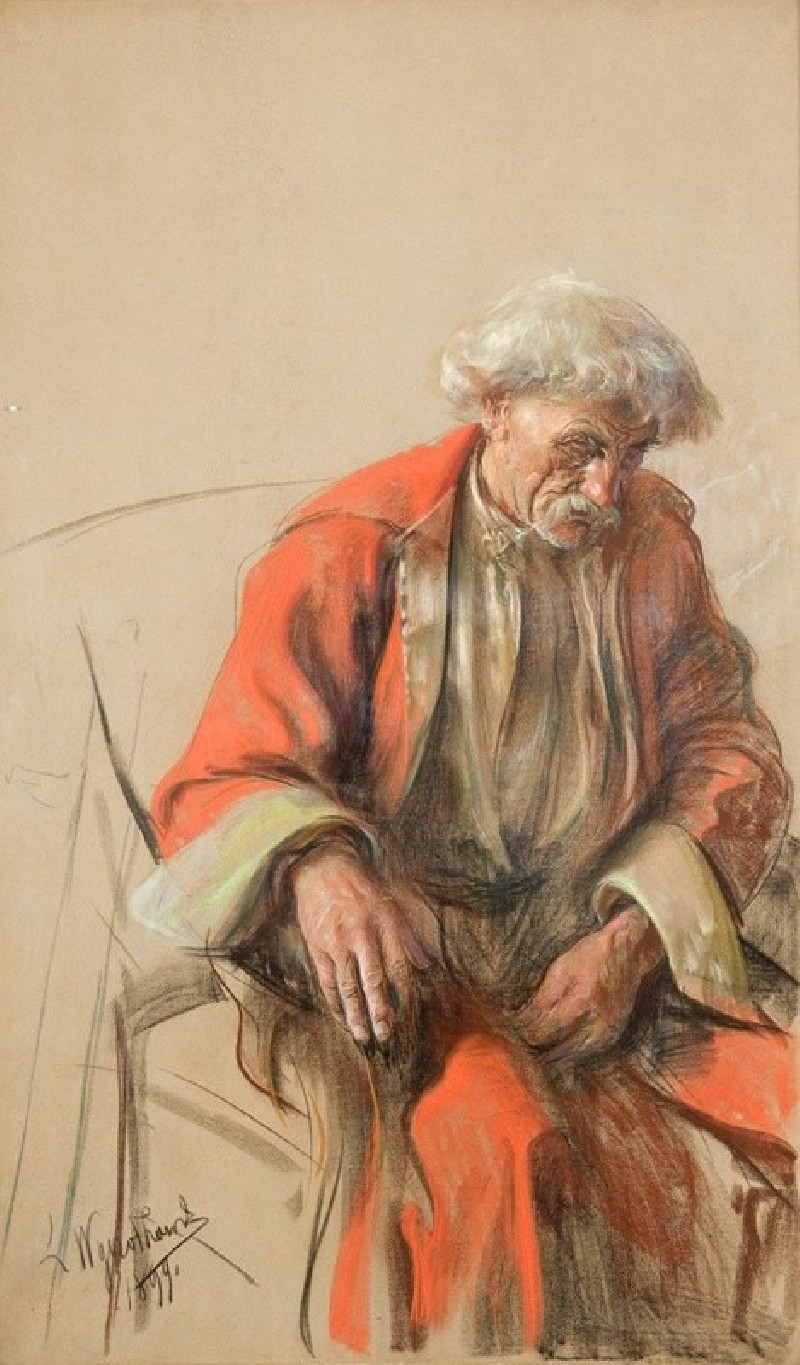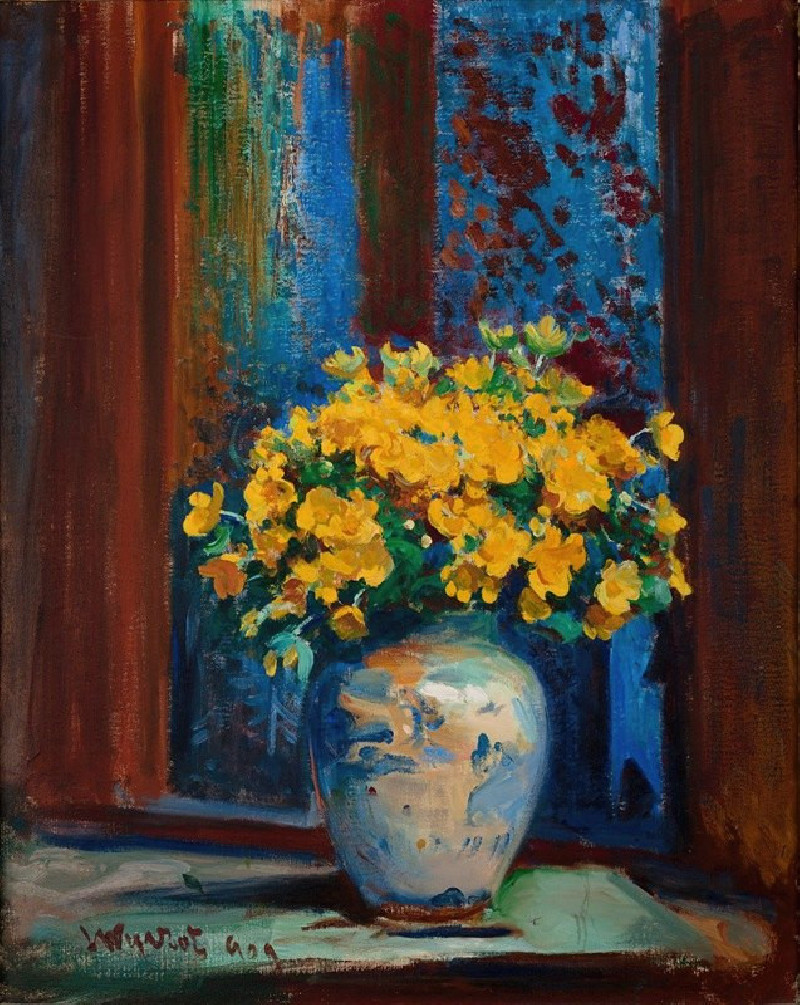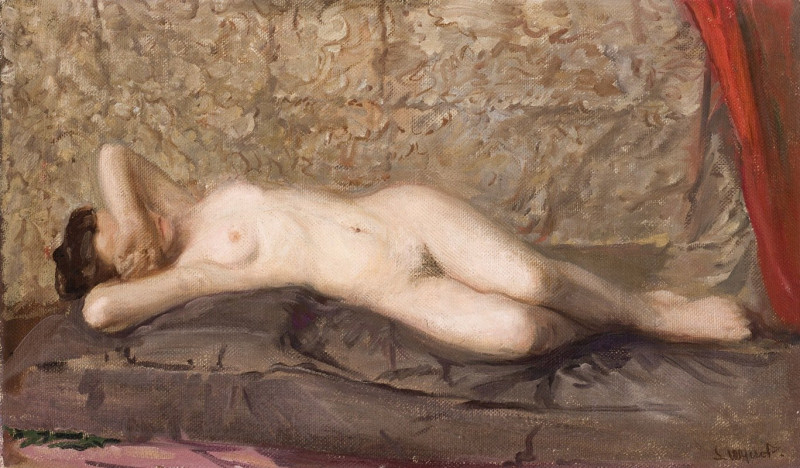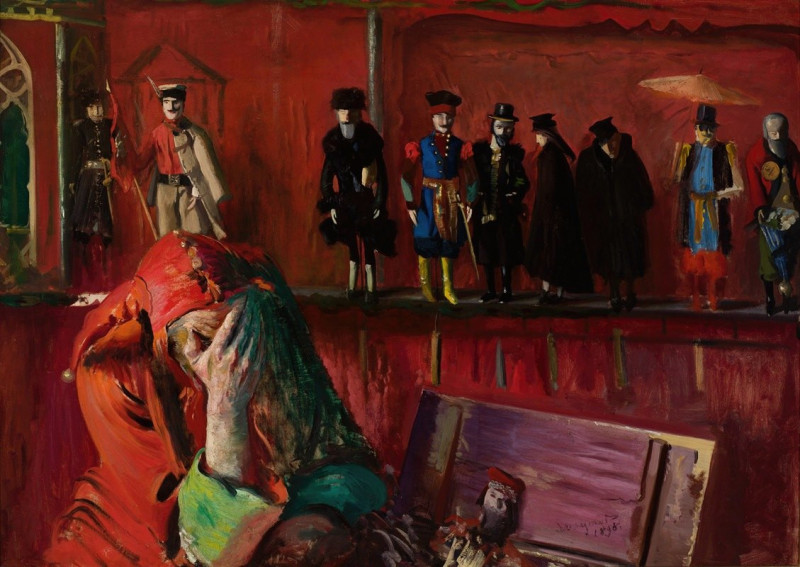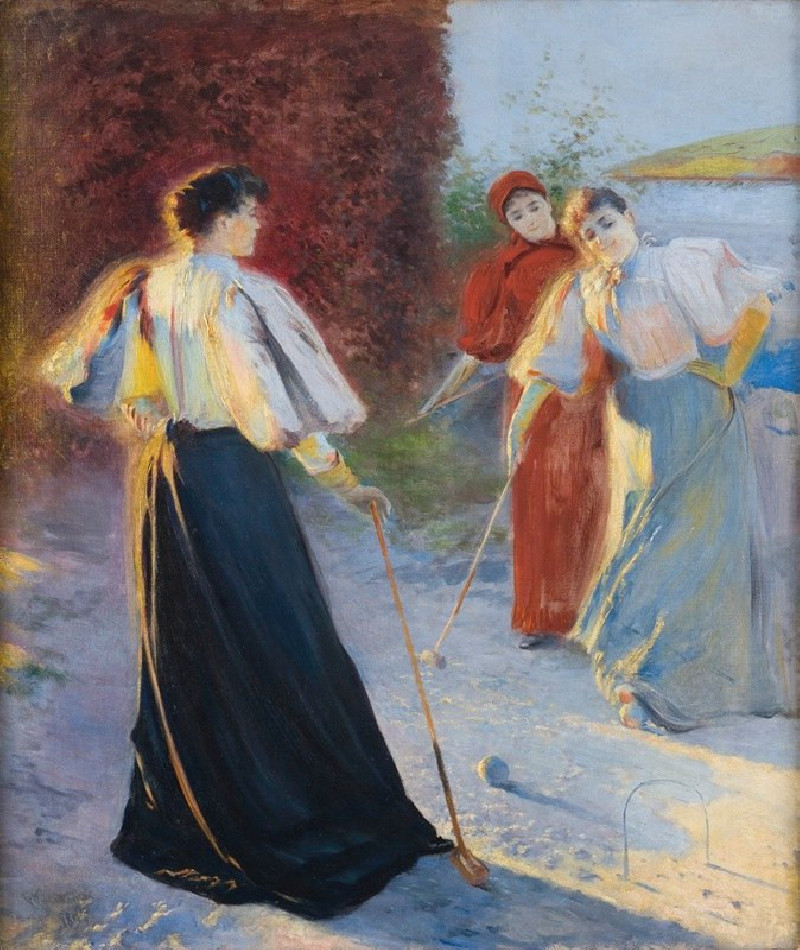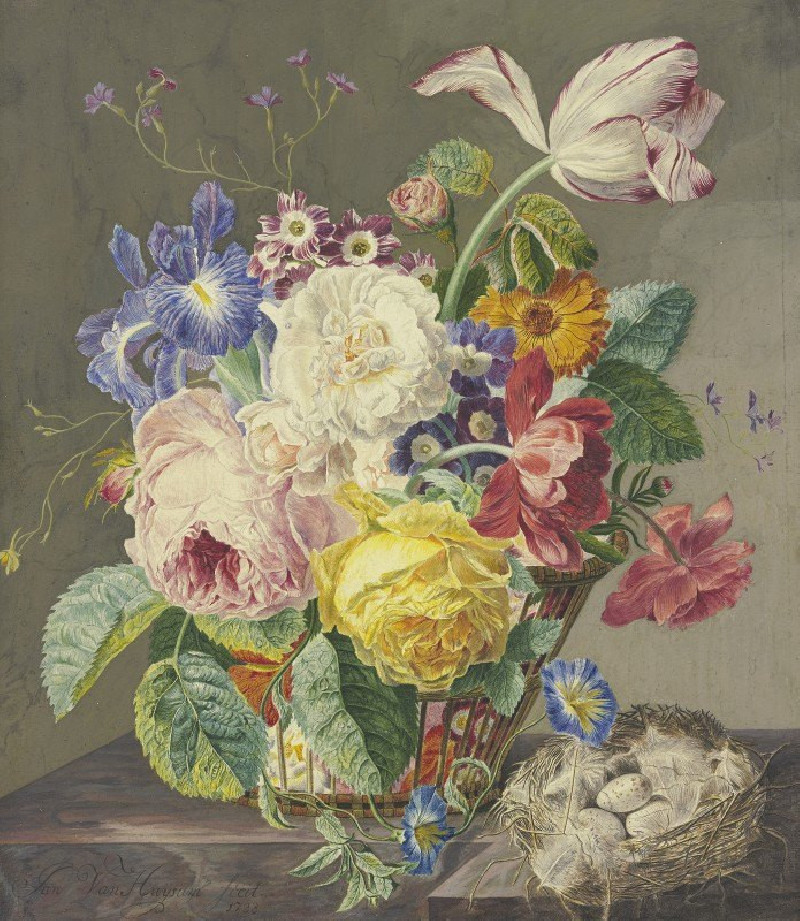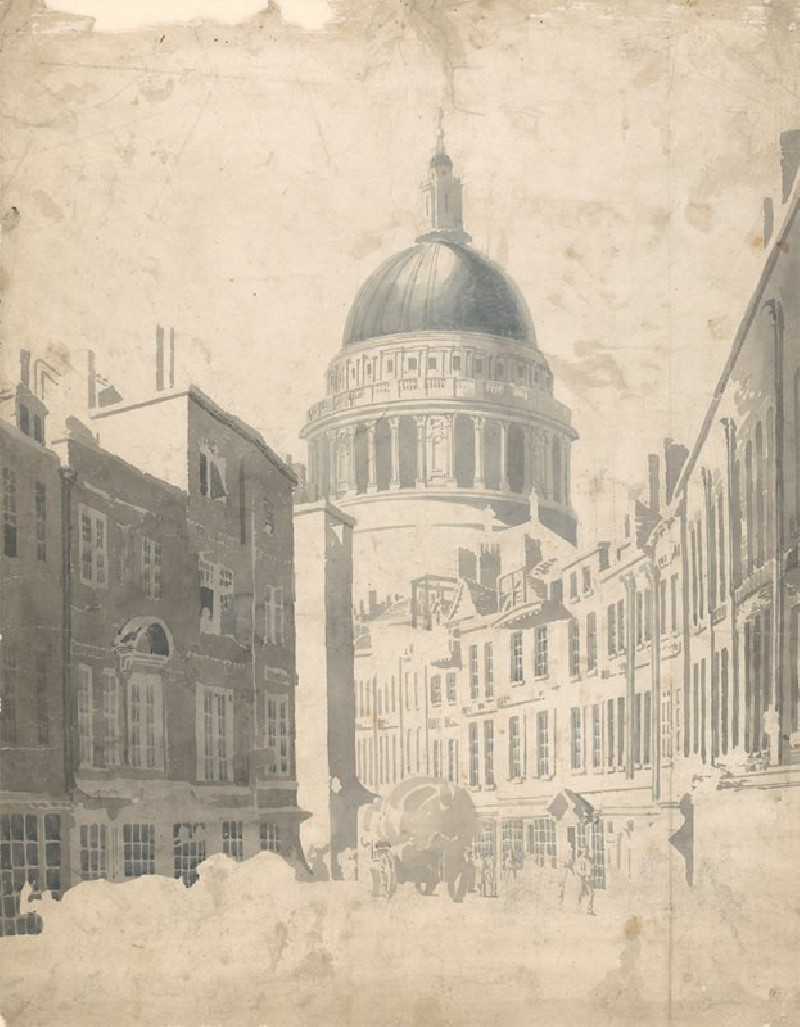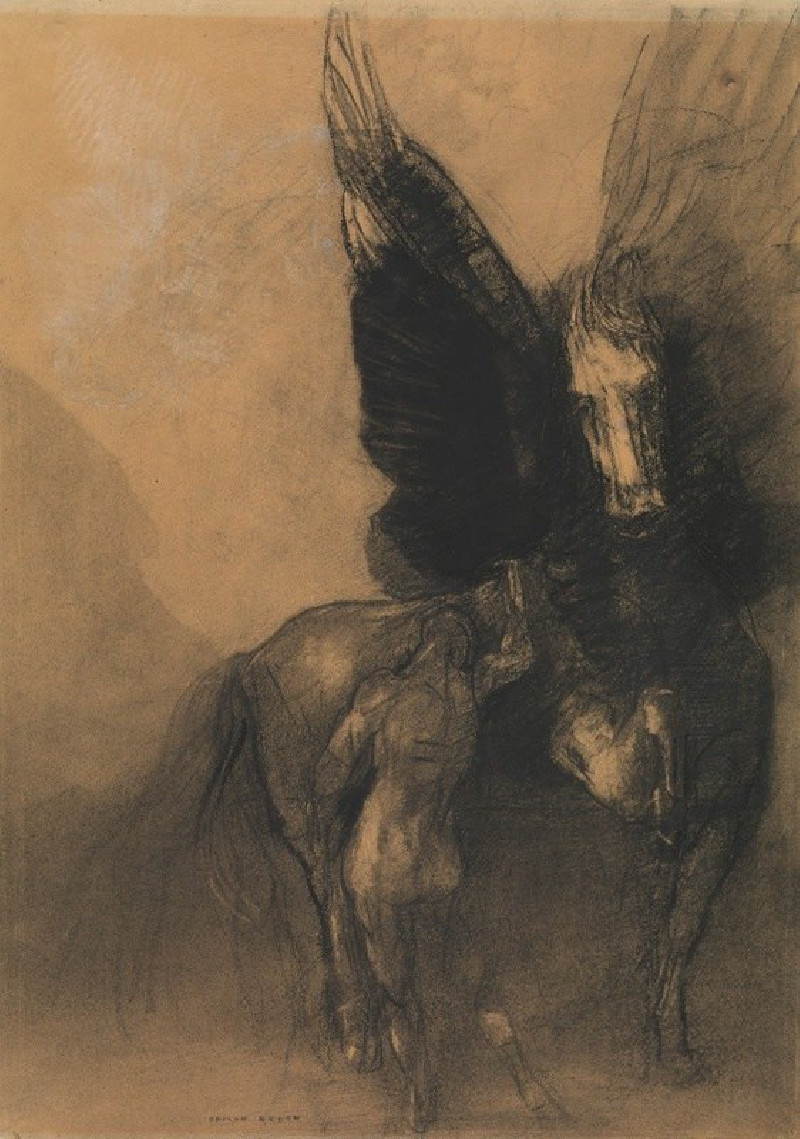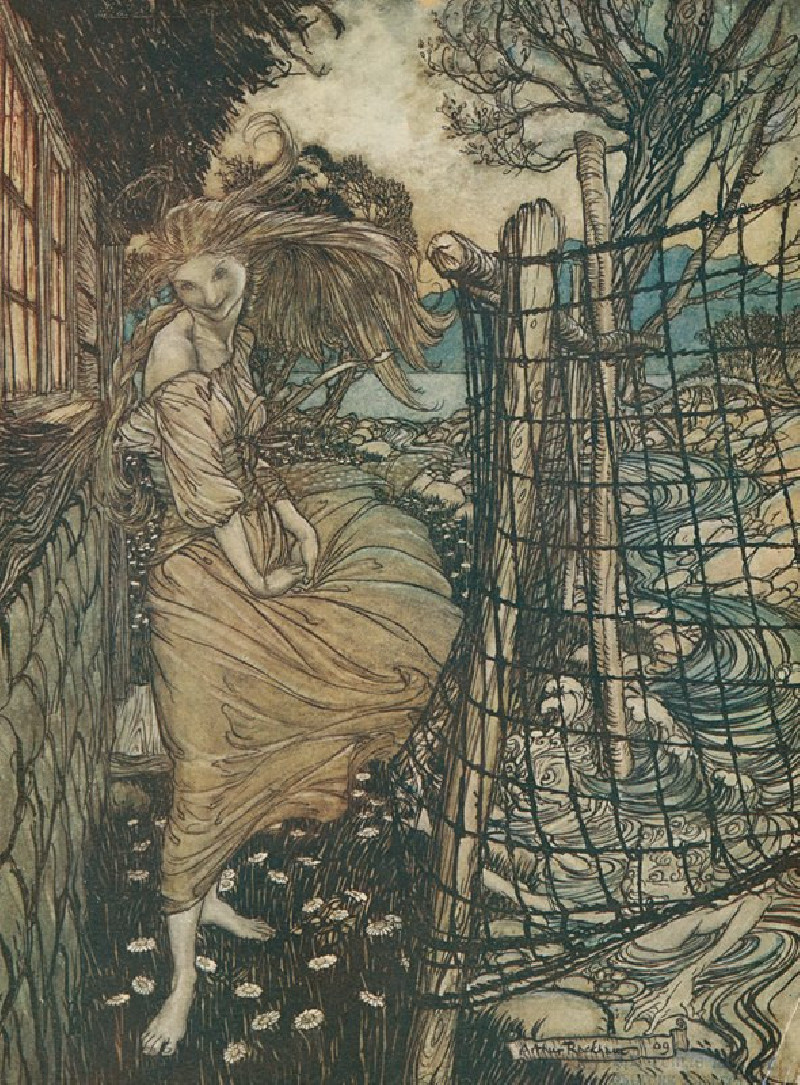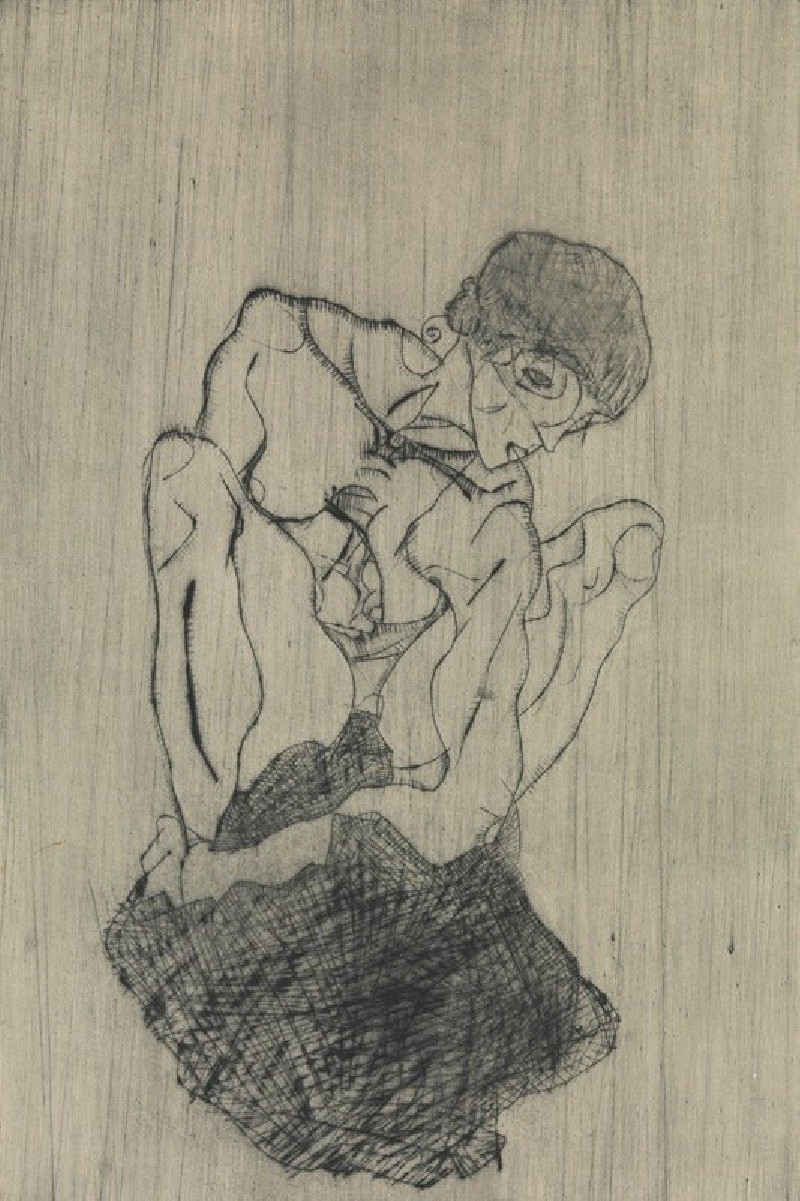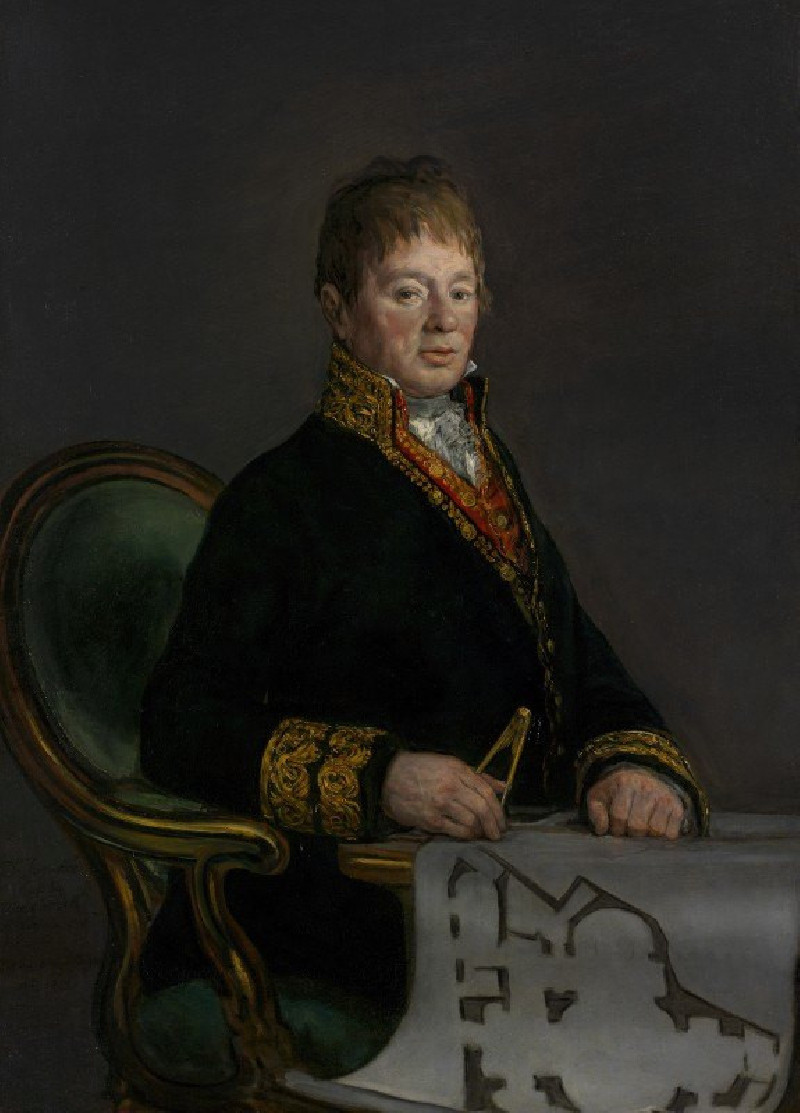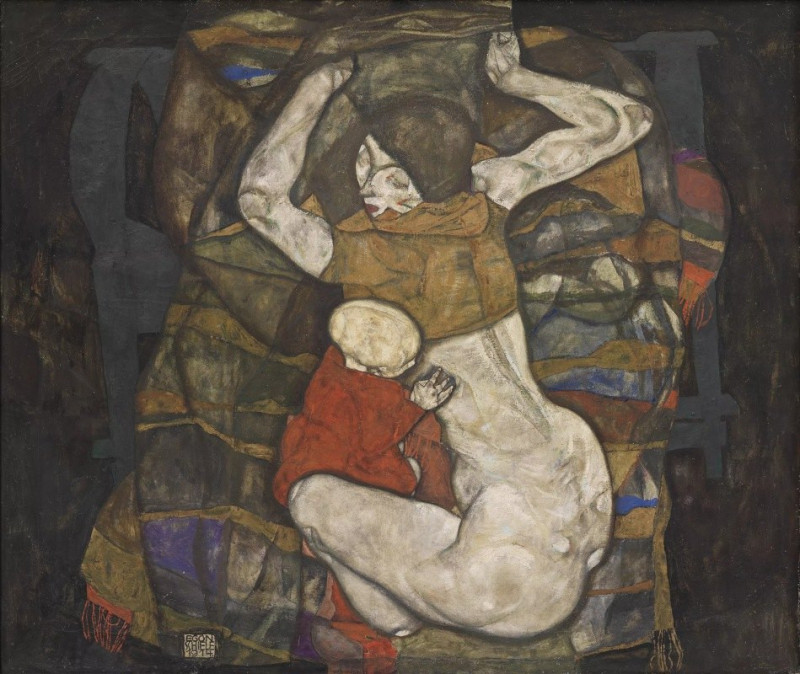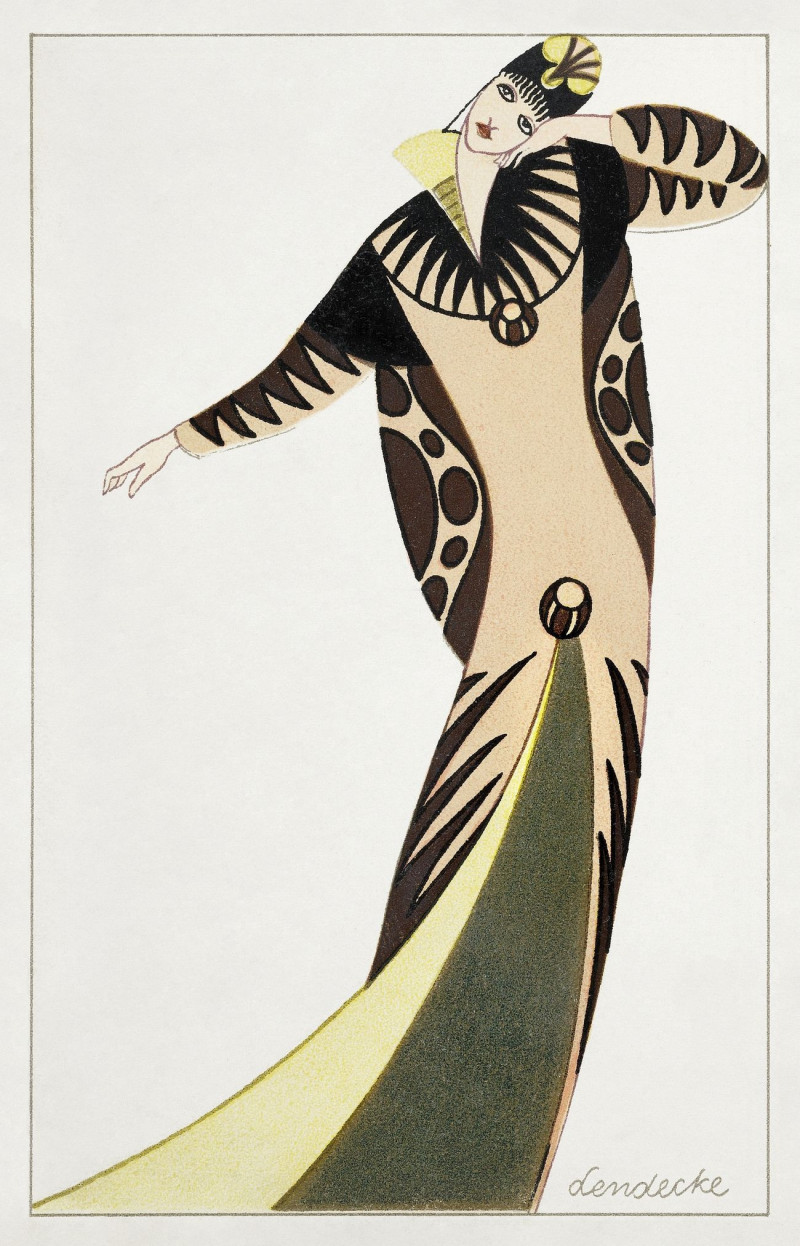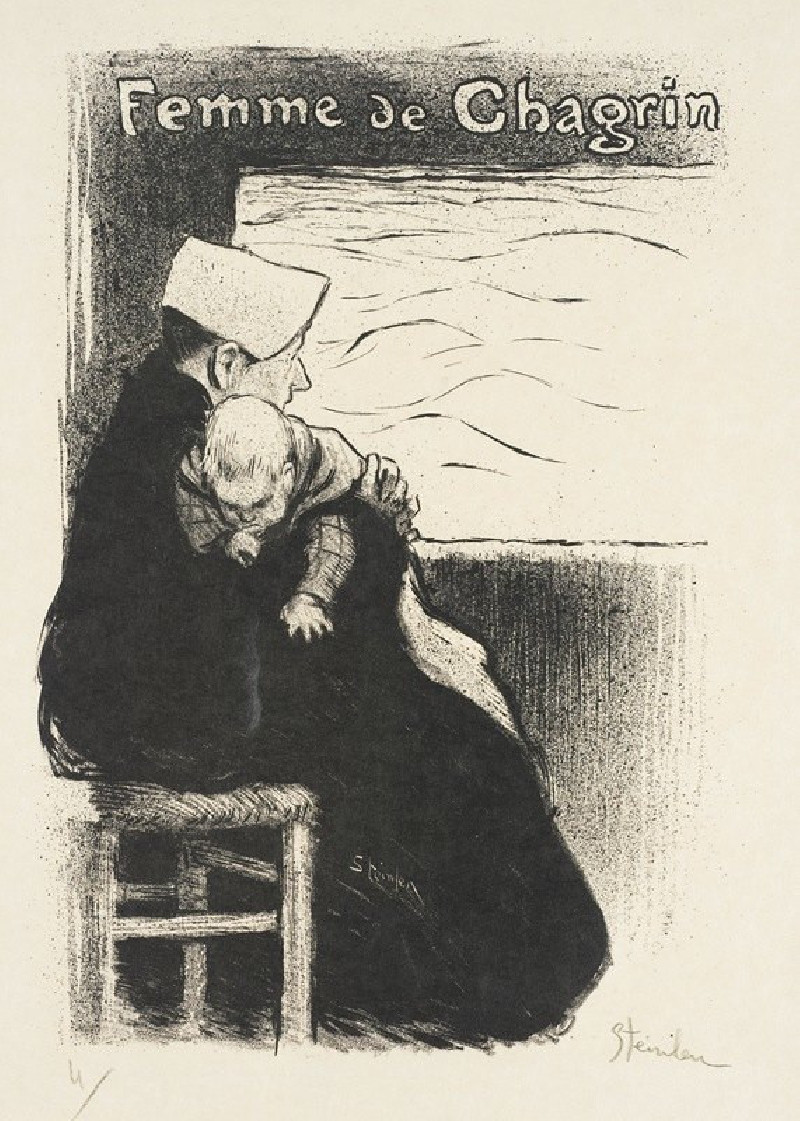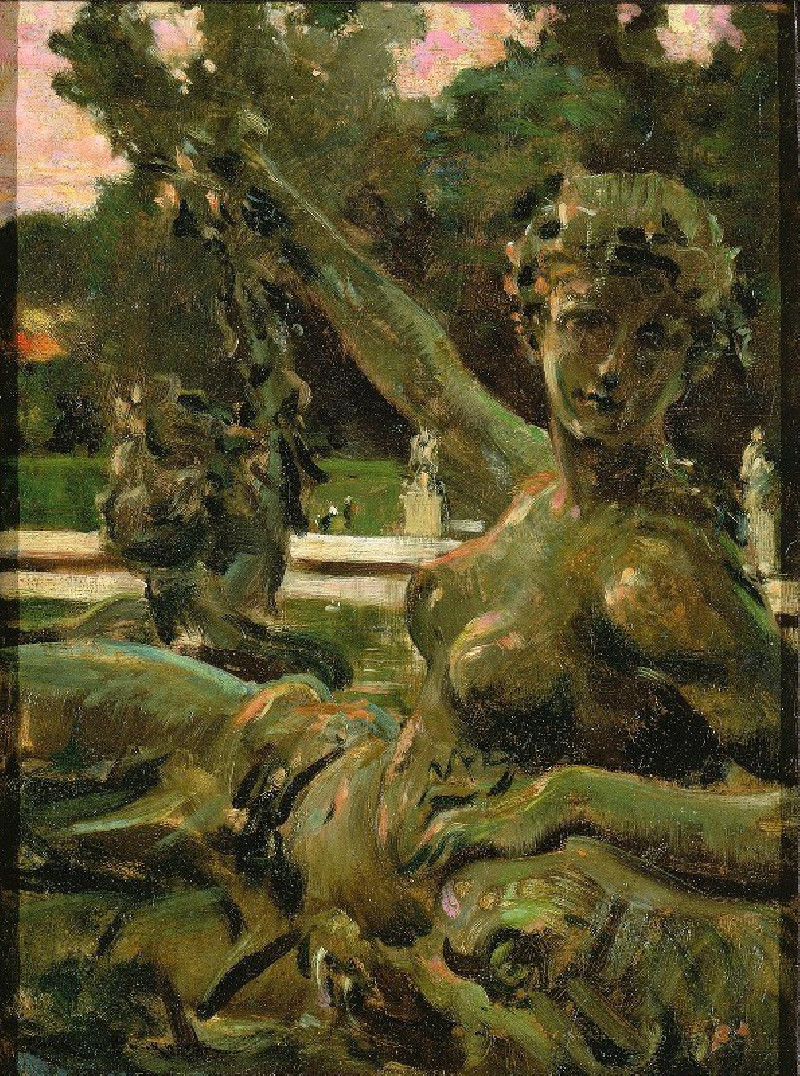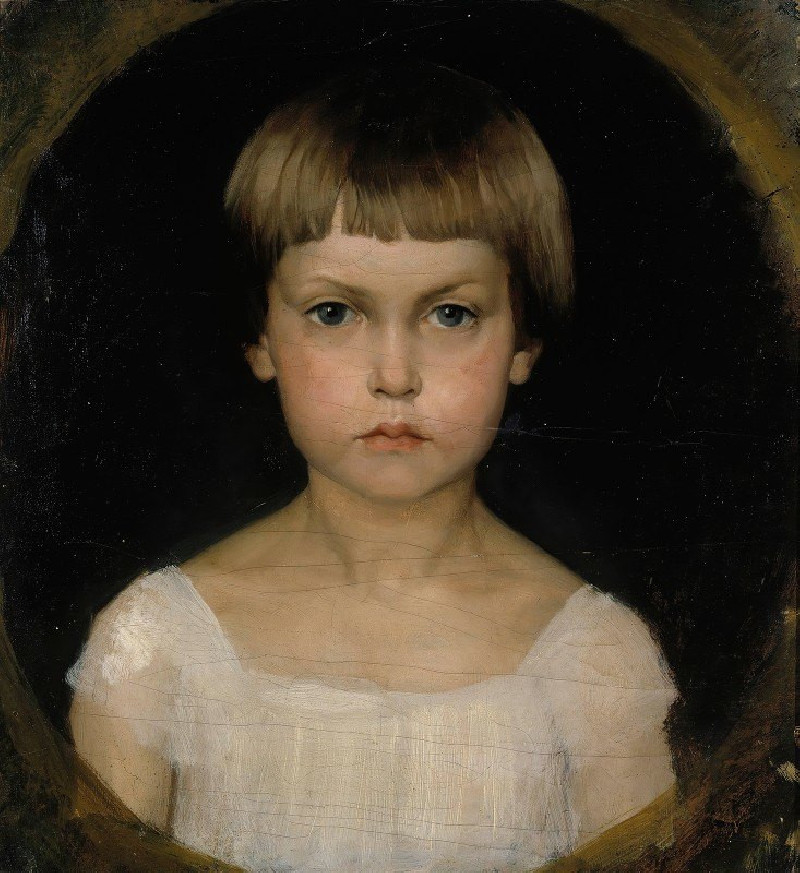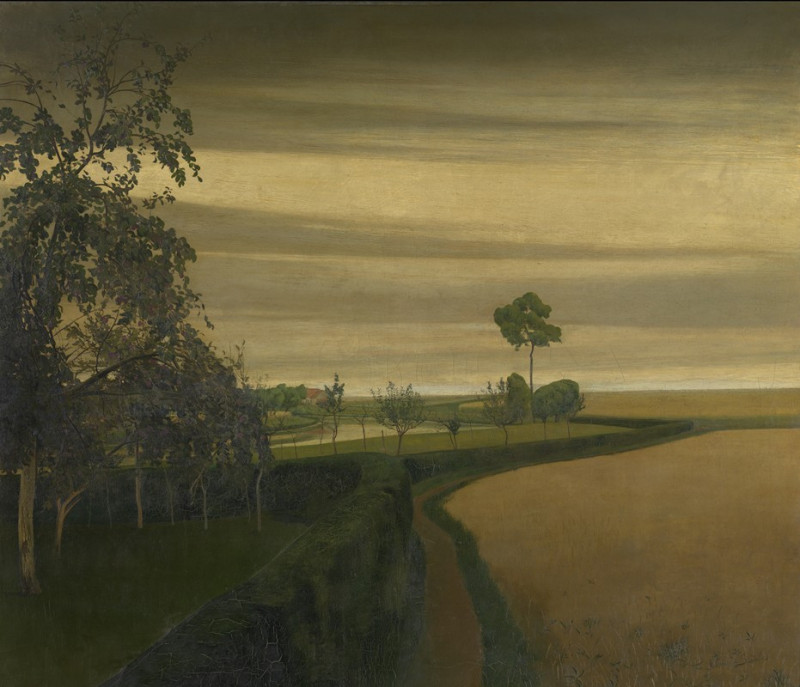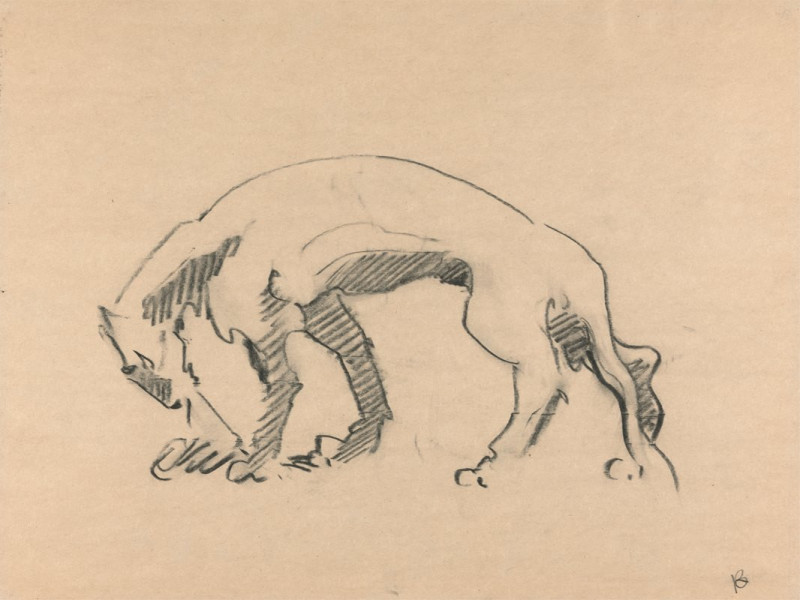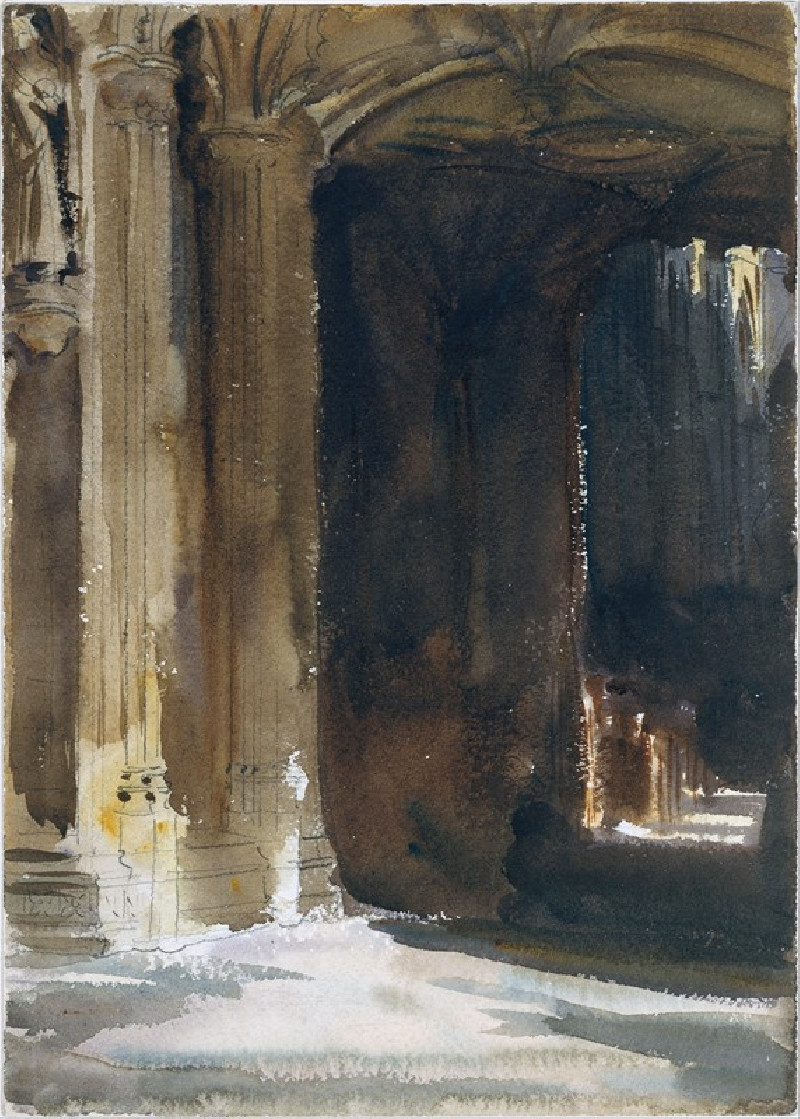Bust of a Bearded Old Man (1876)
Technique: Giclée quality print
Recommended by our customers
More about this artwork
Explore the Timeless Resonance of "Bust of a Bearded Old Man" by Leon WyczółkowskiLeon Wyczółkowski, a pivotal figure in Polish painting, captures the essence of human emotion and fleeting moments of life in his 1876 masterpiece "Bust of a Bearded Old Man". This evocative painting invites viewers to delve into the introspective gaze and dignified aura of its subject, presenting a narrative rich in texture and depth.In "Bust of a Bearded Old Man", the subject is depicted with a profound sense of wisdom and weariness that only a life well-lived can bestow. The old man's eyes, slightly averted, seem to be lost in thought or perhaps reminiscence, conveying a soulful introspection. His majestic white beard and the flowing robes in striking red lend him an almost prophetic quality, creating a powerful presence on the canvas.Wyczółkowski's use of chiaroscuro enhances the contemplative mood, playing with light and shadow to highlight the intricate details of the beard and the deep folds of the vibrant red garment. This technique not only emphasizes the physical aspects of the figure but also accentuates the emotional depth, making the image linger in the viewer's mind as they ponder the stories behind the somber expression.This painting is a testament to Wyczółkowski’s mastery in portraying complex human emotions and his ability to transform ordinary subjects into poignant philosophical reflections. It stands as a significant work in understanding the human condition, offering a timeless glimpse into the soul of its subject.
Delivery
Returns
Leon Jan Wyczółkowski was one of the leading painters of the Young Poland movement, as well as the principal representative of Polish Realism in art of the Interbellum. From 1895 to 1911 he served as professor of the Jan Matejko Academy of Fine Arts (ASP) in Kraków, and from 1934, ASP in Warsaw. He was a founding member of the Society of Polish Artists "Sztuka" (Art, 1897).


